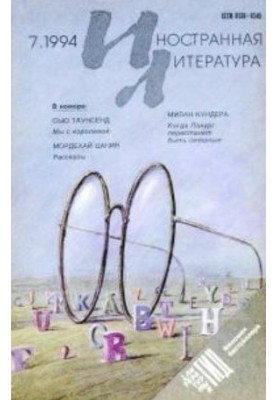Nobel Lecture 1993
 Instant download
Instant download
after payment (24/7)
 Wide range of formats
Wide range of formats
(for all gadgets)
 Full book
Full book
(including for Apple and Android)
Toni Morrison’s 1993 Nobel Lecture is not just a speech by a prestigious international award winner, but a deep and inspiring reflection on the power of words, culture, and human responsibility. In this work, which is often called an essay or manifesto, the author reveals his views on the role of literature and art in the formation of identity, the struggle for justice and the preservation of historical memory. Toni Morrison, one of the greatest writers of our time, had the unique gift of turning words into powerful weapons against oblivion and injustice. Her speech in Stockholm is not only a recognition of her literary achievements, but also a call for every reader to think about the importance of fighting for truth and dignity. This book is ideal for those interested in literature, culture, social justice and philosophy. It will be of interest to both adult readers and young people looking for inspiration and new views on the role of the word in the modern world. It is especially valuable for those who appreciate deep reflections on human nature, history and the role of art in changing society. Toni Morrison in his speech masterfully combines personal stories, historical examples and philosophical ideas, creating a bright and lively canvas that will not leave indifferent anyone who seeks meaning and inspiration. The themes raised in the 1993 Nobel Lecture are not only recognition of the importance of literature, but also reflection on racial and social issues, the need to remember one's history, and how language can become an instrument of liberation or oppression. Morrison says that literature is not just entertainment, but a powerful means of fighting for justice that can change the worldview and fate of people. Her speech is a challenge to modern society, a reminder that each of us has a responsibility to preserve truth and dignity. The style of Toni Morrison in this book is her recognizable mixture of poetic and sharpness, deep philosophical reflection and sincere emotionality. Her speech is filled with metaphors, images and quotes that make every word alive and memorable. In this work, she continues her literary line, which has become famous for such novels as “Beloved” and “Song of Solomon”, works in which the author explores the complex themes of race, identity and memory through vivid characters and richly symbolic narratives. If you are looking for a book that will make you think about the role of art in society, the importance of the struggle for justice and the power of the word, Toni Morrison's "Nobel Lecture 1993" will be a real discovery for you. This is not only a literary work, but also an inspiring message from one of the most influential writers of the 20th century, who was able to turn her thoughts into a powerful weapon of change. Her speech is a reminder that literature and culture can be a bridge to a better future if we are aware of our responsibility and are not afraid to tell the truth. This book is a must-read for anyone who appreciates deep ideas, vivid images, and a sincere passion for justice.
LF/302446343/R
Data sheet
- Name of the Author
- Тони Моррисон
- Language
- Russian
- Release date
- 1994








